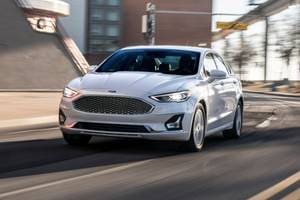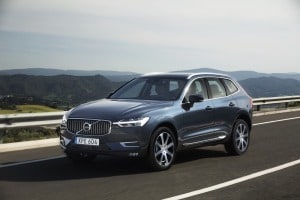Incentives Reveal Lux Sales Title Ambitions

If BMW North America Inc. and Mercedes-Benz USA Inc. really aren't all that concerned about winning the 2011 race for first place in the U.S. luxury market, both brands and their dealers are doing a pretty poor job of demonstrating indifference. As they near the December 31 finish line with BMW holding about a 1,500-unit lead over Mercedes, the No. 2 brand is said to be pulling out a lot of stops in an attempt to usurp BMW. Natural disasters in Asia that deeply cut into Toyota Motor Corp.'s manufacturing ability make it inevitable that Lexus will concede the top spot in the U.S. luxury market for the first time in 11 years.
Both BMW and Mercedes-Benz had sold around 220,000 units in the American market through November, with BMW sales (including its Mini brand) up 15 percent and Mercedes-Benz sales up by 47 percent (including its Smart brand), compared with the first 11 months of 2010. In November, Mercedes closed what appeared to be a nearly-insurmountable gap and by all accounts isn't letting up. "They say [the race] isn't driving their behavior, but that just doesn't add up," said Kurt McNeil, vice president of General Motors Co.'s Cadillac division, which is solidly in fifth place for 2011, running behind Lexus and GM's Buick.
Mercedes-Benz has been offering incentives on its products that are directly competing with Cadillac products that are $1,000 to $1,200 higher. And Ben Poore, general manager of the Infiniti Division, observed that "there is a fairly steep war going on between [BMW and Mercedes] and they're spending money at incentive levels that I've never seen before." Poore cited Mercedes-Benz lease pull-ahead programs that include an eight-month break for existing customers, when two or three months is the industry's standard term for a promotional lease-pull-ahead spiff. "That's a level of incentive spending that we're just not going to chase."

Ivan Drury, U.S. industry analyst for Edmunds.com, confirmed that Mercedes-Benz greatly stepped up the level of its incentives in November compared with the prior month, just as BMW had retained its year-long lead over its rival brand by greatly boosting incentives in July and essentially maintaining that elevated level for the following months. Mercedes-Benz' True Cost of Incentives (TCI) in November, calculated using a proprietary Edmunds.com formula, was an average of $3,020 a car, up sharply from $1,804 in October. Meanwhile, BMW's TCI in November, $3,317, was in the same ballpark as its TCI of $3,721 in October. Other brands' TCI ranged from Audi's $1,384 to Lincoln's $4,337 last month, but none came close to the percentage leap executed by Mercedes-Benz last month. "Mercedes just has a different approach with incentives," said Steve Smith, general manager of operations for Audi USA. "We continue to be disciplined about our incentives."
Not Really A Race
Of course, BMW and Mercedes-Benz executives played it coy about the race but, remarkably, not nearly as coy as they did a few months ago. They again struck a seeming nonchalance about wresting the crown from Lexus and cited a number of current and seasonal factors that just sort of make it look like they're racing to the 2011 finish line. But the tension of their struggle remained evident. "You could argue [Mercedes] was a tad excessive" with "some of their efforts" last month to "spark the market," said Dan Creed, vice president of marketing for BMWNA. Yet Creed noted that BMW's lead of about 1,500 to 1,600 units as December began was about 1,000 to 1,100 units more than the lead BMW held over Mercedes-Benz at the same time a year ago, when BMW was battling for the No. 2 spot behind Lexus. "Our approach to market is that of a premium brand," he said. "We're not going to do a whole lot different in December, just keep our nose to the grindstone. Mercedes still has to catch up — I think we'll outsell them this year."
Hold on a minute, said Mike Slater, vice president of sales operations for Mercedes-Benz USA; Slater objected to industry peers' characterization of his company's approach in November. Winning the sales crown "is not a goal or a target," he insisted. Year-to-date, he stressed, "our incentives are less than those of BMW and Lexus. They're both increasing incentive activity and looking for excuses why they're getting beat so badly," in offering deals to consumers. "We have no plans to 'try' to catch BMW. What will be will be. We're not going to do anything crazy just to try to beat BMW." Besides, as Slater put it, becoming the market's No. 1 luxury brands means "you get bragging rights for a few weeks and that's about it."
Dynamic Market
Sales executives for both German brands explained a number of factors that created an intriguing picture for November and December sales — disregarding any particular sprint to the finish. The end of the year traditionally provides a strong finish for luxury brands for a number of reasons, including tax considerations and the increasingly high-profile holiday- and seasonally-themed incentive programs that have become the end-of-the-year norm. Mercedes-Benz's Slater cited not only his brand's holiday promotion but also a number of other factors for the company's year-end sales burst, including heavy investments by Mercedes-Benz dealers over the last year in facility upgrades and sales-training programs, quality improvements, a flurry of marketing and advertising and, most important, strong sales of new products, including an all-new C-Class Coupe and an all-new M-Class midsize crossover. The success of all of those positives is "actually why competitors think that we went to crazy levels to sell cars," he said.
For BMW's part, Creed explained, its 7-Series in November "had its best [sales] month in ages;" the 5-Series sold well and the X3 and X5 utility vehicles posted "a great month." He said that BMW's November results were especially impressive given that the brand remains in the midst of a switch to a new version of its high-volume 3-Series that it'll begin producing in February. "To be in the sales position we are in with the run-out of our largest-volume series right now is pretty good," he said. "And when you also take into account that [the BMW assembly plant in] Spartanburg [S.C.] is operating flat-out and can't come close to meeting worldwide demand for our sports activity vehicles, we're pretty excited."
In any event, one of the most remarkable aspects of the BMW-Mercedes battle is that Mercedes-Benz is waging it to a much greater degree with newer model-year vehicles, while BMW has proportionally more 2011s on hand. "Mercedes-Benz's incentive increase wasn't solely for the purposes of the model-year sell-down, because they're almost sold out of 2011 model-year vehicles," Drury said. "BMW still has lots of 2011s to sell off and with their slight lead in year-to-date sales, BMW could keep their sales lead unless Mercedes wants to continue with their large discounting of 2012s."
On Pace In 2012
Overall, luxury-brand executives said they expect their segment to continue to post sales increases in 2012 that track in proportion with the mainstream market. Both mainstream buyers and luxury-market customers remain plagued by the same types of economic uncertainties, they said, but upscale customers get especially spooked by the kind of huge swings experienced lately by the stock market. "Our customers, when their investment portfolios jump around like they have been, there's an apprehension about doing anything too crazy," said Cadillac's McNeil. "Into next year, as the economy improves and more stability comes into play, I see the luxury segment getting better [versus the mainstream market]. That's perfect for us," he said, because of the timing of some new-product introductions for Cadillac.
For the near-luxury Buick unit, which has been steadily upgrading its portfolio over the last three years, a new strength in industry sales of sport-utility vehicles and crossover-utility vehicles has translated recently into strong demand for the Enclave fullsize crossover. And Buick just began selling its new compact Verano. "Dealers are anxious to get as many of those as they can," said Roger McCormack, Buick's product marketing director. The Verano will help Buick's increasingly successful effort to "conquest" buyers from Lexus and other imported luxury brands, he said.
Of course, new products are what ultimately juice any brand in any segment, and Infiniti's Poore cited the fact that his brand now presents a "freshened" FX utility vehicle, which sold 25 percent more in November than a year earlier. "With the old version, it had a design that you either loved or hated," he said. The new version "is still very aggressive [in design] but much more mainstream and with broader appeal, and the first month's sales play that out." And in the first quarter, Infiniti will introduce an all-new nameplate, the JX fullsize crossover with three rows of seating, which will represent "a real growth opportunity for us because it's the fastest-growing luxury segment."





